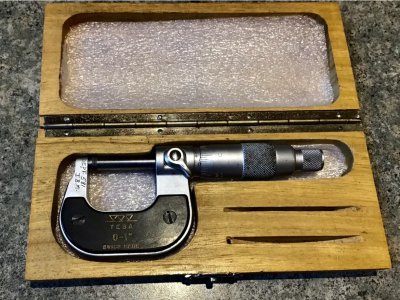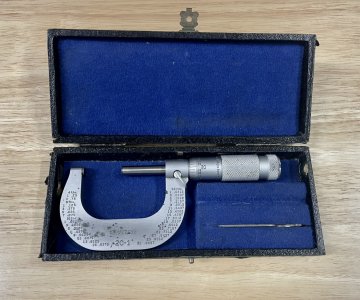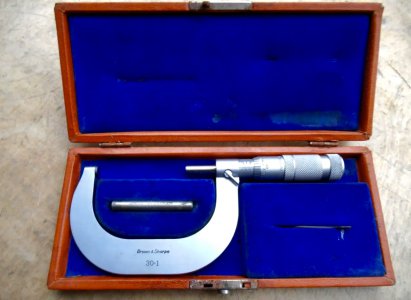- Joined
- Jan 9, 2023
- Messages
- 239
So, after searching in here and reading up on micrometer advice I decided to take a chance on some older brand name micrometers to start out with. I’ve used a friend’s very cheap Chinese stuff and just felt the eBay risk was worth not having to use junk like that. I paid between $32 and $46 for them each shipped. My goal was to stay under $50 each shipped. They all have a return policy, good seller rating/feedback and had decent pics to see overall condition, they look pretty good to me. Hopefully I got lucky! Did I make a mistake? These are what I picked out:
TESA 0-1" Micrometer Brevete Swiss Made

Brown & Sharpe No 20-1 Slant Line Outside Diameter Micrometer 1-2" Range .0001"

Brown & Sharpe 30-1 Slant line, 2-3” .0001” Grad Micrometer

TESA 0-1" Micrometer Brevete Swiss Made

Brown & Sharpe No 20-1 Slant Line Outside Diameter Micrometer 1-2" Range .0001"

Brown & Sharpe 30-1 Slant line, 2-3” .0001” Grad Micrometer


